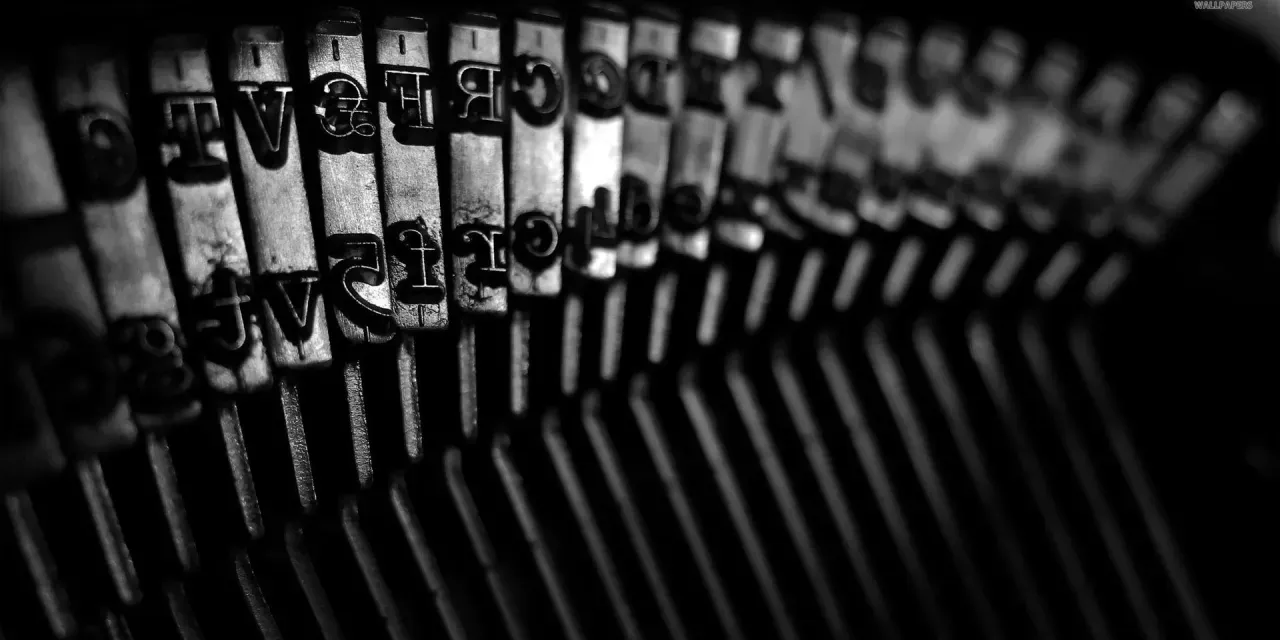Litblog Roundup 37

A posthumous publication from Allen Gisnberg, smuggling short stories out of North Korea, computer-text analysis, and more from the Litblog Roundup: topics, trends, and highlights from writers, readers, and publishers throughout the literary Internet.
From the Poetry Project Archives
The audience for poetry is small and dwindling . In many places, that audience is lucky to be treated to a local reading every once in a while. In those places, it must be difficult to imagine a place like the Saint Mark’s Poetry Project, with readings nearly every week, each month of the year, where it has been that way for decades. Recently shared from the archive of the poetry project, the first edition of The Readings List: Readings & Events at the Saint Mark’s Poetry Project 1966-1980 offers a hand-typed list of every poet featured there, during those years. It’s an impressive list.
Wait Till I’m Dead
Speaking of typewritten, archival material… Last month saw the publication of the first collection of poems by Allen Ginsberg in 15 years. The posthumous publication is cleverly titled “ Wait Till I’m Dead Uncollected Poems By Allen Ginsberg ”. Lithub has a teaser from the introduction and photographs of some of the original pages of poetry with Ginsberg’s marginalia and ephemera .
Smuggled Stories
It’s one thing not to live in close proximity to a sufficiently stimulating number of literary events. It’s quite another to live under threat of death for writings that are critical of the government, or even merely accurate about life under that government. A new collection of short stories, smuggled out of North Korea , is set to be published in English.
Words by Any Degree
As long as there are institutions that grant the Mater of Fine Arts degree to writers, and as long as there are blogs about writing, there will be blog posts about the relative merits of that degree. What difference does an MFA make? It’s hard to qualify, really, but it might be getting easier to quantify. The Atlantic’s recent article has everyone asking’, “ How Has the MFA Changed the Contemporary Novel? ”. For the article, the authors “wrote a program to analyze hundreds of works by authors with and without creative-writing degrees. The results were disappointing.”
Chad Harbach has argued more recently in his popular essay “ MFA vs. NYC ,” “the university now rivals, if it hasn’t surpassed, New York as the economic center of the literary fiction world.” If there are indeed “two literary cultures” in Harbach’s words, we should be able to detect it. We began by looking at writers’ diction: whether the words used by MFA writers are noticeably different than those of their non-MFA counterparts. Using a process known as machine learning, we first taught a computer to recognize the words that are unique to each of our groups and then asked it to guess whether a novel (that it hasn’t seen before) was written by someone with an MFA. […] For example, MFA novels tend to focus more on lawns, lakes, counters, stomachs, and wrists. They prefer names like Ruth, Pete, Bobby, Charlotte, and Pearl (while non-MFA novels seem to like Anna, Tom, John, and Bill). But on the whole, these distinctions look pretty meaningless; the words that appear more often in MFA novels don’t seem to be related to each other in a significant way.
The article has attention, mostly in the form of posted quotes, link-shots, and snarky reddit replies , but substantial commentary on it is available from Electric Literature , Melville House , Hyperallergic , and Teleread .